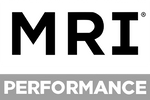Stress Hormones & the Lifting Lifestyle: How to Outsmart Cortisol
Posted by Medical Research Institute on 1st Jun 2025
More workouts, more stress? Here's how cortisol is quietly stealing your progress.
If you train like your life depends on it, eat with purpose, and track your macros down to the gram, but still feel flat, fatigued, or like your gains are stuck in quicksand, there might be a different kind of overload holding you back.
It's not your workout program. It's not your macros. It's not even your genetics. It might be cortisol.
Cortisol is your body's primary stress hormone, and while it's essential for survival, it's also a sneaky saboteur of muscle growth and recovery when left unchecked. High-performing lifters and Type-A athletes are particularly vulnerable, especially those who overtrain, under-recover, and ride the cortisol rollercoaster all week long.
Let's break down how cortisol impacts training, how to recognize when it's working against you, and how supplements like DHEA and L-glutamine can help you outsmart it and stay anabolic.
Cortisol 101: The Good, The Bad, and The Overtrained
Cortisol isn't inherently evil. In fact, you need it to regulate energy, wake up in the morning, and handle physical or emotional stress. It spikes during workouts to help with focus, fuel, and performance. That's the good.
But when cortisol levels stay elevated for too long, from intense training without rest, poor sleep, high work stress, or calorie restriction, your body shifts into survival mode. And that means holding onto fat, breaking down muscle, and stalling recovery.
Signs of chronically elevated cortisol include:
- Trouble sleeping or waking up groggy
- Fat gain around the midsection
- Slower muscle recovery or frequent soreness
- Mood swings, irritability, or brain fog
- Decreased performance despite consistent training
If you're training hard but not progressing, cortisol might be the silent culprit.
Cortisol and Lifting: When Stress Becomes the Enemy
Lifting heavy isn't the problem. It's the lack of recovery and hormonal balance that turns your training from a muscle-building stimulus into a muscle-wasting liability.
Too much cortisol can:
- Break Down Muscle Tissue: Cortisol increases protein breakdown and decreases protein synthesis. Translation: your hard-earned muscle becomes fuel.
- Blunt Testosterone and Growth Hormone: These anabolic hormones take a hit when cortisol stays high, making it harder to gain lean mass.
- Suppress Immune Function: High cortisol taxes the immune system, increasing your risk of illness, inflammation, and slow recovery.
- Wreck Sleep and Recovery: Cortisol should be lowest at night. If it's elevated, you're not getting quality deep sleep, and your muscles pay the price.
Outsmarting Cortisol: A Recovery-First Strategy
You can't eliminate stress, but you can train your body to recover smarter. That means prioritizing sleep, fueling post-workout, managing mental stress, and using targeted supplements that support hormonal recovery.
Two key players for cortisol control in the lifting lifestyle? DHEA and L-glutamine.
DHEA: The Cortisol Counterbalance
DHEA (dehydroepiandrosterone) is a hormone produced by your adrenal glands. It's a precursor to testosterone and estrogen, but it also plays a direct role in buffering cortisol. As we age, or overtrain, DHEA levels drop, leaving cortisol unchecked. Supplementing with DHEA helps restore hormonal balance, promoting an anabolic environment even in the face of stress.
Benefits of DHEA for lifters include:
- Improved mood and energy
- Enhanced muscle preservation
- Hormonal support for recovery and testosterone
- Reduced impact of stress on muscle tissue
For high-performers and overachievers, DHEA acts like a hormonal spotter, helping your body handle the load without collapsing under stress.
L-Glutamine: Recovery Fuel and Gut Guardian
Glutamine is one of the most abundant amino acids in the body and a critical recovery nutrient. It supports muscle protein synthesis, immune function, and gut health, all areas impacted by elevated cortisol.
Training hard? Glutamine gets depleted. Add chronic stress to the mix, and your reserves drop even faster.
Why glutamine matters when cortisol is high:
- Rebuilds muscle post-training
- Fuels immune cells and gut lining
- Helps maintain recovery even in high-stress periods
Stacking L-glutamine with DHEA creates a two-pronged recovery shield: one managing hormones, the other reinforcing tissue and immunity.
Lifestyle Tips to Lower Cortisol Naturally
Supplements work best when paired with smart habits. Here's how to tame cortisol through your daily routine:
- Sleep 7-9 hours consistently: Deep sleep is when cortisol drops and growth hormone spikes. No shortcut here.
- Eat balanced meals with carbs: Low-carb dieting raises cortisol. Don't fear carbs post-workout; they help blunt the stress response.
- Train hard, but cycle intensity: Deload weeks, active recovery, and smart programming prevent adrenal burnout.
- Try breathwork or short meditations: Five minutes of deep breathing can reduce cortisol faster than scrolling social media.
- Supplement wisely: Add DHEA and L-glutamine to your recovery stack, especially if you're training 4+ days per week or feeling run down.
MRI Performance Solutions: Train Hard, Recover Harder
To stay anabolic in a high-stress training environment, you need tools that go beyond protein shakes.
MRI Performance DHEA 50 supports hormonal balance and muscle preservation for hard-training lifters and athletes under stress.
MRI Performance L-Glutamine restores depleted amino acid levels, repairs gut lining, and supports immune strength for faster recovery and more consistent gains.
Together, they create a recovery stack designed for the realities of modern training life, where stress is high, demands are constant, and rest is non-negotiable.
Bottom Line: Don't Let Cortisol Steal Your Gains
You train for progress, not burnout. If cortisol is the silent thief in your program, it's time to fight back with smarter recovery, strategic supplementation, and a hormonal game plan.
DHEA keeps cortisol in check. Glutamine rebuilds the system. The result? A body that doesn't just survive stress, it grows through it.
Your effort deserves results. Outsmart stress, stay anabolic, and make every rep count.

